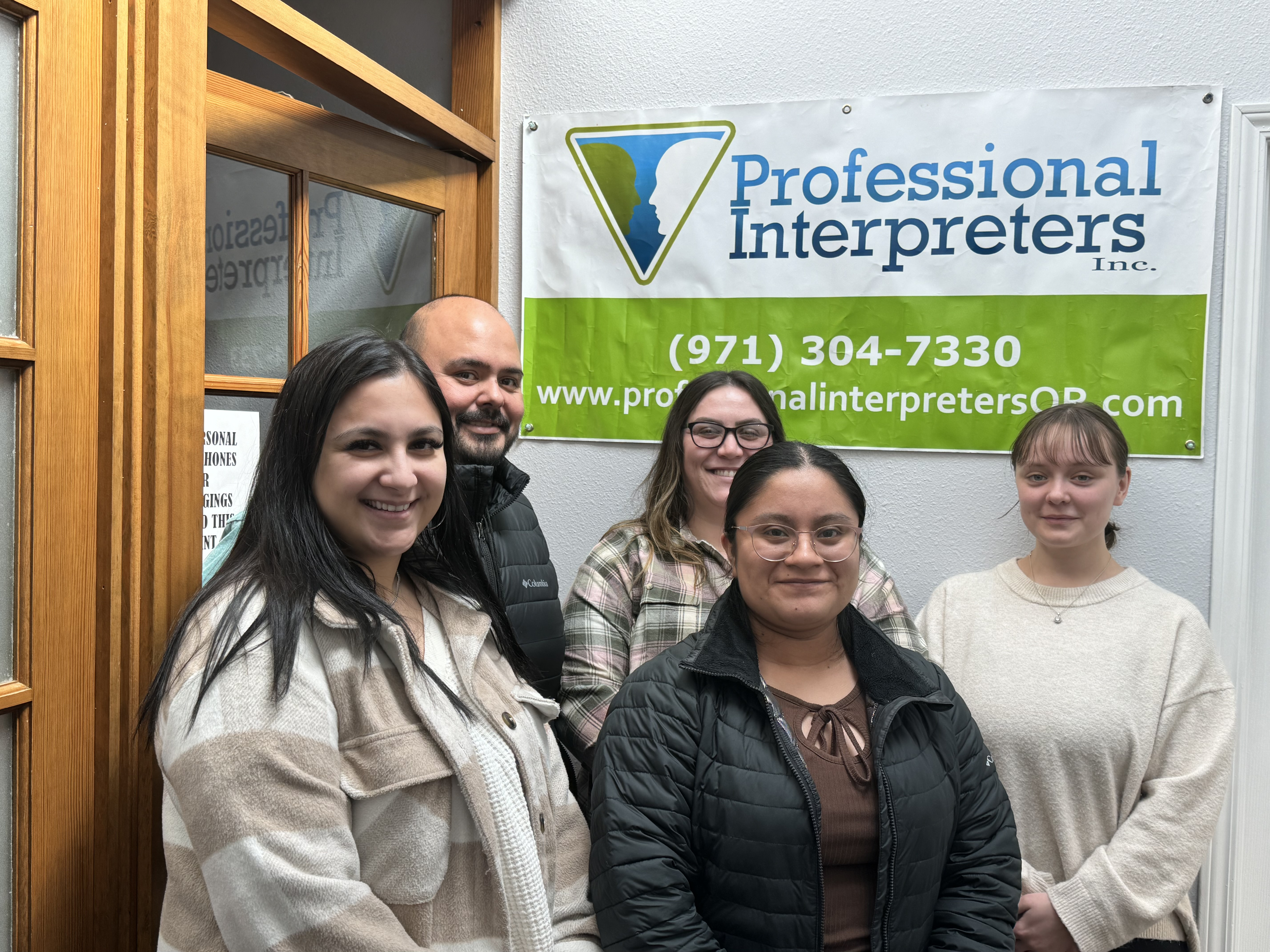Interpreters Provide Bridge for Immigrant Language Gap

There are some people who have jobs and then there are others who have a calling or a mission. DeAnna Tapia has found hers. Tapia founded Salem-based Professional Interpreters Inc., which helps non-English speakers across Oregon with translating and interpreting services so they can live better, more informed lives.
While she was a pre-nursing student at Chemeketa Community College, Tapia worked at Silverton Hospital as a Spanish interpreter to pay for her education. She enjoyed her work but discovered that after they left the hospital, many of the patients she helped were “falling through the cracks” and weren’t getting the follow-up care they needed because of their language barriers.
Many asked her for continued help with interpreting, and she gladly volunteered to help many of them when she was off the clock.
A physical therapist recognized Tapia’s skill while she worked at the hospital and encouraged her to start her own business. She took the leap and opened Professional Interpreters Inc. in 2006.
“For the first 10 years, I didn’t see it as a business. The Small Business Development Center reached out to ask if I wanted help with my business, and not until that point did I realize that it could be a business. The SBDC really came alongside me and said, ‘let us help you’.” After receiving some business training from the center, Tapia’s business took off.
Now her company employs 250 contract interpreters and 13 full-time staff members, including her husband Raul Tapia, who is the company’s CFO. Originally interpreting in Spanish, they now work in 68 different languages.
Professional Interpreters Inc. works with many industries, including healthcare, education, business, banking, finance, some legal settings like traffic courts, and ministry.
Tapia said their goal as interpreters is to help people “have the information they need to empower them to make the best decision” for themselves and their families.
Tapia hires many bilingual young people who have experience interpreting for their own families. She said many people don’t realize interpreting and translating can be a good career option that doesn’t require a college degree.
In Oregon, interpreters must be 18 years old, and medical interpreters must be registered with the state. Tapia makes sure her employees and contracted interpreters are all trained, helping them gain experience to meet any requirements. Her company provides free interpreting services to the Salem Free Clinic, where her interpreters-in-training gain real-world experience – all under the guidance and supervision of seasoned interpreters.
Tapia said the languages most in demand in Oregon for interpreting services are Spanish, Russian, Chinese–Cantonese and Mandarin, and American Sign Language.
Across Oregon, she has seen an uptick in requests for interpreting services for refugees from countries like Somalia where an African dialect of French is spoken.
According to the Oregon Department of Human Services, 620 refugees have located in Marion County between 2020 and February 2024. A total of 2,509 refugees have arrived and been placed in Oregon between 2021-2023 through Refugee Resettlement Agencies, but many more are coming outside of this process.
The number of refugees in Oregon receiving cash assistance from the ODHS, funded by both state and federal funds, has jumped from 4,167 people in 2022 to 7,252 people in 2023.
Hector de la Cruz is another person helping immigrants and non-English speakers here in Oregon. Tapia said de la Cruz was one of her former standout interpreters. Now he is one of the very first staff interpreters at the Oregon State Legislature. He helps Spanish speakers and lawmakers communicate with each other.
De la Cruz helps Spanish-speaking Oregonians testify on bills in their native language. He said that while testifying can be intimidating, he helps Spanish-speaking Oregonians voice their opinions on issues that are important to them.
“I give them insight into how testifying works and give them some comfort, peace of mind, and let them know that I’ll be there to guide them.” He is part of a language access team that facilitates translating and interpreting in many languages for Oregonians at the capitol.
“It is so gratifying to be able to facilitate conversations and break language barriers to make a difference for people. It fulfills me and makes me happy,” he said.
De la Cruz’s colleague Tapia has learned that being an immigrant can be a huge culture shock. “They come to our country because they want a better life for their family.” She reminds us that “we’re all humans – just because we’re born in a different country doesn’t disqualify anyone. Let’s give them a chance and all be human together.”




